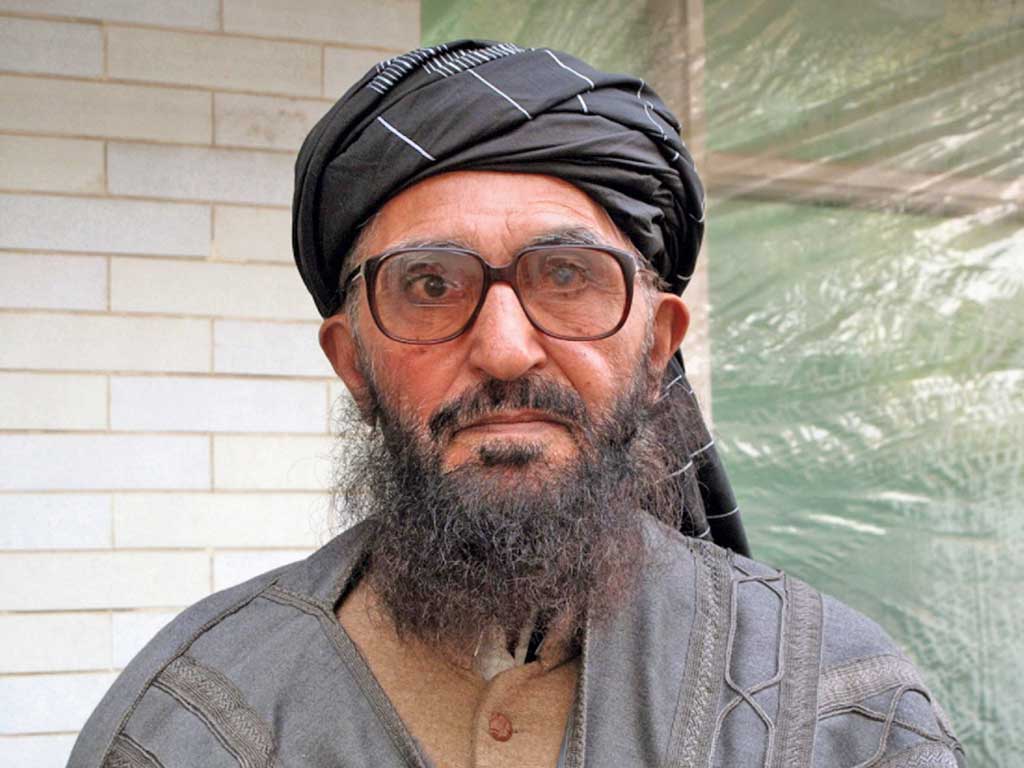Rogue Afghan police officers shoot dead two British troops
Latest fatal attack brings the number of UK military killed in the Afghan conflict to 414

Your support helps us to tell the story
From reproductive rights to climate change to Big Tech, The Independent is on the ground when the story is developing. Whether it's investigating the financials of Elon Musk's pro-Trump PAC or producing our latest documentary, 'The A Word', which shines a light on the American women fighting for reproductive rights, we know how important it is to parse out the facts from the messaging.
At such a critical moment in US history, we need reporters on the ground. Your donation allows us to keep sending journalists to speak to both sides of the story.
The Independent is trusted by Americans across the entire political spectrum. And unlike many other quality news outlets, we choose not to lock Americans out of our reporting and analysis with paywalls. We believe quality journalism should be available to everyone, paid for by those who can afford it.
Your support makes all the difference.Two members of the British military were shot dead by Afghan policemen in the latest fatal instance of rogue elements in the country's forces turning their guns on their allies.
The servicemen, a soldier in the 1st Battalion Welsh Guards and a RAF airman, were shot dead at a checkpoint at Lashkar Gah district in Helmand where they were providing security for a meeting with Afghan officials. The killings brought the number of UK deaths in the war to 414.
The attacks came on the day Afghanistan took its next faltering step towards the exit of Western forces with the declaration of another series of regions passing under the security control of Hamid Karzai's government. But just hours before the announcement, Arsala Rahmani, an ex-Taliban official now involved in the peace process was shot dead in Kabul.
The Afghan government and international forces said the murders were the vicious reactions of an insurgency which is fracturing, with more of its soldiers defecting under a "reconciliation programme" and morale supposedly fraying among its leadership, the "Quetta Shura", based in Pakistan.
But the shootings by the Afghan police, a so-called "green on blue" attack will heighten foreboding among Western forces of an enemy within. Around 20 coalition troops have been shot dead in 2012 this year by erstwhile comrades, with the Taliban boasting of "sleepers" in the ranks. Examination of the circumstances of some deaths, however, show various reasons for the killings, not all of them political. But they have still been propaganda coups for the insurgents.
The policemen opened fire with their AK-47 Kalashnikov rifles at Patrol Base Attal around 3 o'clock in the afternoon during what was described as a routine meeting. They were identified last night as Sarhad Mohammed, 20, from Deshu district in Nagarhar, and Sardar Wali, also 20, from the Helmand town of Musa Qala, which had changed hands between British and American forces and the Taliban several times in bloody clashes. Afghan officials say Sarhad Mohammed was the first to start shooting and was then himself killed by another Afghan policeman. Sardar Wali was wounded in the arm but managed to flee. Fareed Ahmed, a spokesman for the Helmand provincial police, said the men had been in the force for about a year and their behaviour had not aroused suspicion.
British and other international troops are taking additional precautionary measures following a spate of similar lethal incidents. There is also more rigorous vetting, including biometric testing, for recruits seeking to join the Afghan forces. But there was no indication the two policemen had not been put through such scrutiny.
Major Ian Lawrence, spokesman for Task Force Helmand, said: "The thoughts and condolences of everyone serving in the Task Force are with their families and friends."
Defence Secretary Philip Hammond said: "British forces work alongside Afghan forces every day with thousands of contacts with them every day. This is a country that has an insurgency... sadly, occasionally, these events occur."
Peace talks hit by murder of negotiator
The death of Arsala Rahmani is being viewed as a severe blow to efforts to bring the insurgency leaders to the negotiating table. The former Taliban education minister, pictured, was ambushed as he was being driven to work yesterday morning.
Gunmen in a car fired a single bullet to the heart. General Ayub Salangi, the head of the Kabul police force, said: "He died instantly." Mr Rahmani was one of several former members of the Taliban hierarchy who was removed from a UN blacklist in July 2011 to allow them to engage in the peace process. His background of serving in Mullah Omar's government gave him a degree of credibility with the militants who the Afghan government-organised High Peace Council were striving to convince to renounce violence.
Last year, the head of the council, Burhannudin Rabbani, was killed by a suicide bomber with explosives in his turban. Yesterday the Taliban denied involvement.
Join our commenting forum
Join thought-provoking conversations, follow other Independent readers and see their replies
Comments